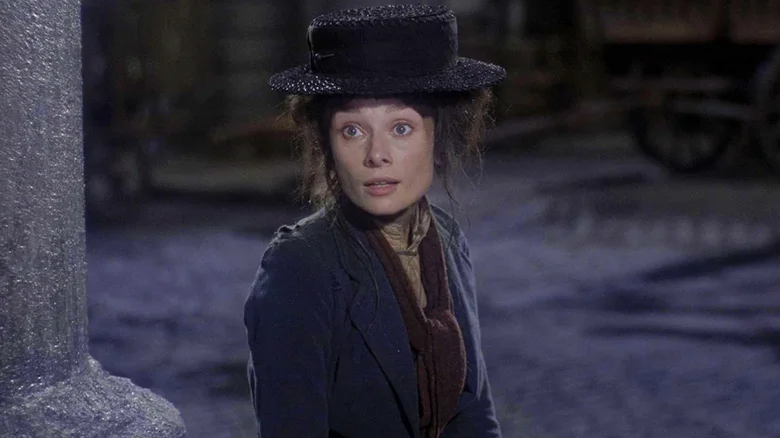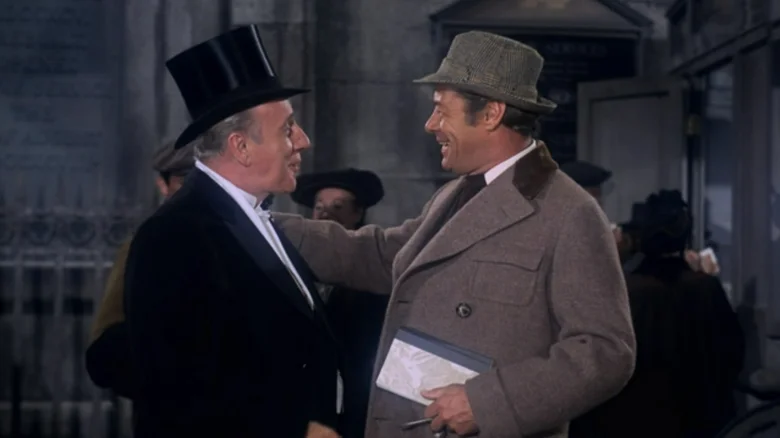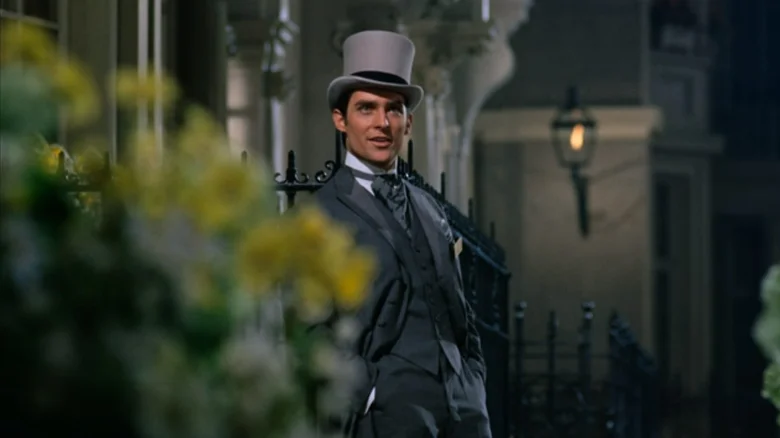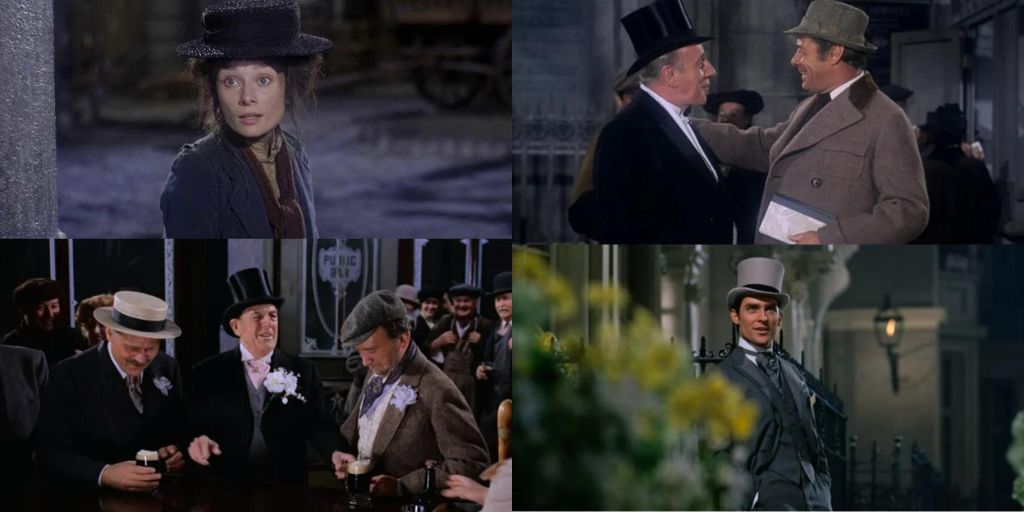The 1964 film musical “My Fair Lady” is based on the same-titled stage musical by Lerner and Loewe from 1956. That musical, in turn, was based on the Greek mythology-based theatrical drama “Pygmalion” from 1913. Hollywood may be the end of the trail, but Broadway is equally guilty of the same tricks when it comes to reboots and remakes.
The fundamental relationship between the creator and the created remains the same, even though the tale of “My Fair Lady” has been greatly modified from ancient mythology. Well, it’s no longer about a sculptor and a sculpture; rather, it’s about British high society.
In any case, Audrey Hepburn plays the title role of Eliza Doolittle in the 1964 movie. Rex Harrison, who earlier starred in the Broadway version opposite Julie Andrews, co-stars as Professor Henry Higgins, the title character who claims to be a “fair lady.”
Gladys Cooper, Jeremy Brett, Stanley Holloway, and Wilfrid Hyde-White all have significant roles; their credits will be disclosed when available. Even if “My Fair Lady” is more than half a century old and its underlying story is far older, you wouldn’t be held responsible for not seeing it.
Thirty would have been plenty, and the writers used three hundred words, which adds up quite quickly. You should set aside an incredible two hours and fifty-three minutes to watch the Warner Bros. picture. Even those of us who are musically inclined would find that challenging.
My Fair Lady Ending Explained
We must establish a shared underlying backdrop for all parties before delving into the implications of the conclusion. Go to the next slide if you don’t require a brief synopsis of the plot! “My Fair Lady,” despite its lengthy duration, is quite simple to understand.

Audrey Hepburn portrays Eliza Doolittle, a poor woman with a heavy Cockney accent who sells flowers to make ends meet. Henry Higgins, played by Rex Harrison, is a wealthy phonetician who has an inquisitive intellect and a callous disposition toward people in general, particularly ladies.
When the two cross paths in London’s streets, the story begins. Eliza begs Higgins to teach her how to talk in a way that would improve her position in life after their first meeting, during which Higgins laments the range of English accents he finds repulsive.
After his coworker Colonel Hugh Pickering (Wilfrid Hyde-White) characterizes Doolittle’s situation as a wager on Higgins’ ability to instruct, Higgins agrees. To help get things going, Pickering also offers to pay for the entire thing. The task is this: six months after the wager is made, Higgins has to present Eliza as an appropriate member of high society at an event.
“My Fair Lady” deftly illustrates the refreshingly unromantic connection between Eliza and Higgins through music, dancing, and the clashing of stubborn personalities. Eliza’s deadbeat father, Stanley Holloway’s character Alfred Doolittle, occasionally appears to lighten the mood with a six-minute song and an outright disdain for his unmarried current companion.
Eliza Doolittle meets the attractive and charming socialite Freddy Eynsford-Hill while they are both enjoying horse racing. Like the other members of high society, he is there to enjoy the gorgeous ponies and a little gambling, including Henry Higgins’ mother, Ms. Higgins (Gladys Cooper).
But Eliza’s purpose in being there is to finish a test run for the conclusion of Higgins and Hugh Pickering’s bet. To her credit, Eliza manages to fit in—for the most part. When she virtually screams at one of the racehorses, exclaiming, “Come on, Dover!” her cockney accent comes through, exposing her background as a commoner. Get your bloomin’ arse moving!”
Feeling instantly attracted to Eliza, good ol’ Freddy follows her home with flowers and stalks her street, singing love ballads, as any sane person would do in his circumstances. The title of his hit song is “On the Street Where You Live.” It’s hinted that he stays close after finishing his creeper song to gain a sense of Eliza’s natural environment.
After that, Freddy appears precisely once more because he is a figure who is completely irrelevant. It is quite evident that Eliza has no affection for him in return and that she is prepared to fall flat in Freddy’s lap if things with her platonic roommate, Higgins, don’t work out.

His presence seems to be intended as a pacifier for viewers who might be turned off by the purposeful lack of romance between the two main protagonists. The only other reason Freddy is around is in case Eliza gets fed up with Higgins’ conceit and needs someone to yell at. Eliza Doolittle’s father, Alfred Doolittle, is absent and only appears in her life to plead for money.
He works as a dustman for the city, which is a British euphemism for someone who collects rubbish, so he’s not unemployed, but as his song “With a Little Bit of Luck” implies, he’ll use any chance to avoid working. In fact, “My Fair Lady” doesn’t take long to paint him as a morally reprehensible man who would stop at nothing, even if it meant extortion.
Soon later, Doolittle shows up to blackmail the professor for money, claiming that his poor daughter’s morality is in jeopardy after learning that Eliza had moved in with Higgins during her elocution course. As Higgins is a lot more cunning and shrewder than he is, this ends up being his undoing.
Doolittle despises accountability above all else, so Higgins connives to make him shoulder the biggest of all the responsibilities: managing the public’s riches. During the last scene of the play, Doolittle tells his daughter that Higgins put him in touch with a wealthy American who was searching for heirs to shape ethically.
He would “force” himself into becoming an honest man by the substantial public fortune bequeathed to him by the Americans. Doolittle complains that he is now being begged for money by others, that he has to dress elegantly, and that he has to marry Eliza’s stepmother—a vow he never even made to Eliza’s biological mother.
Before launching into his last song, “Get Me to the Church on Time,” Doolittle bemoans the fact that “middle-class morality,” which he abhors completely, has shackled him. He just doesn’t hate it enough to take concrete action. Henry Higgins, the professor, is a bright man.
He claims that his ability to read language is so good that he can tell, from listening to someone speak, practically exactly where they were born—down to the square mile. Sadly, he delivers exactly what he says. The problem is that he is an openly misogynistic and a flaming egotist, as we have already discussed.
Higgins bluntly informs everyone who would listen, most of his unfortunate employees who are primarily women, that while people are stupid, women are much dumber. While spewing his brand of horrors, he may speak in flowery and lighthearted terms, but anyone who has a dog and a bottle of Febreze knows that one aroma will never overpower the other.
The peculiar aspect of his character’s storyline resolution is that he never acknowledges any fault. He’s taken aback and perplexed that Eliza would think his efforts should take into account her sentiments when she correctly accuses him of taking credit for her work during their classes.
He either disputes or completely disregards the reprimands from Eliza, Hugh Pickering, his employees, or even his mother for his outrageous behavior. If someone removed Higgins’ sex drive, he would be Jeff Winger (Joel McHale) from “Community.”

Eliza leaves Higgins alone with his thoughts after outlining just what makes him a despicable person. He eventually acknowledges that he would miss her in this quiet. Eliza reappears at Higgins’ door two minutes later. Thus, this is as close to a character arc as Higgins will ever get. It’s a reluctant, incomplete confession. After one final jab, the film concludes. Poor Eliza Doolittle is in debt.
Given the grave circumstances surrounding her, every decision and contradiction that follows makes it more logical. Eliza stubbornly rejects every change that is presented to her while living with Henry Higgins, even though it was she who went looking for him and not the other way around.
While it’s true that she can be stubborn at times, most of her decisions make more sense when you consider that she is acting as though her fight-or-flight response is locked in the “on” position. Faced with a bathtub, no one in a relaxed, secure state of mind screams bloody murder.




